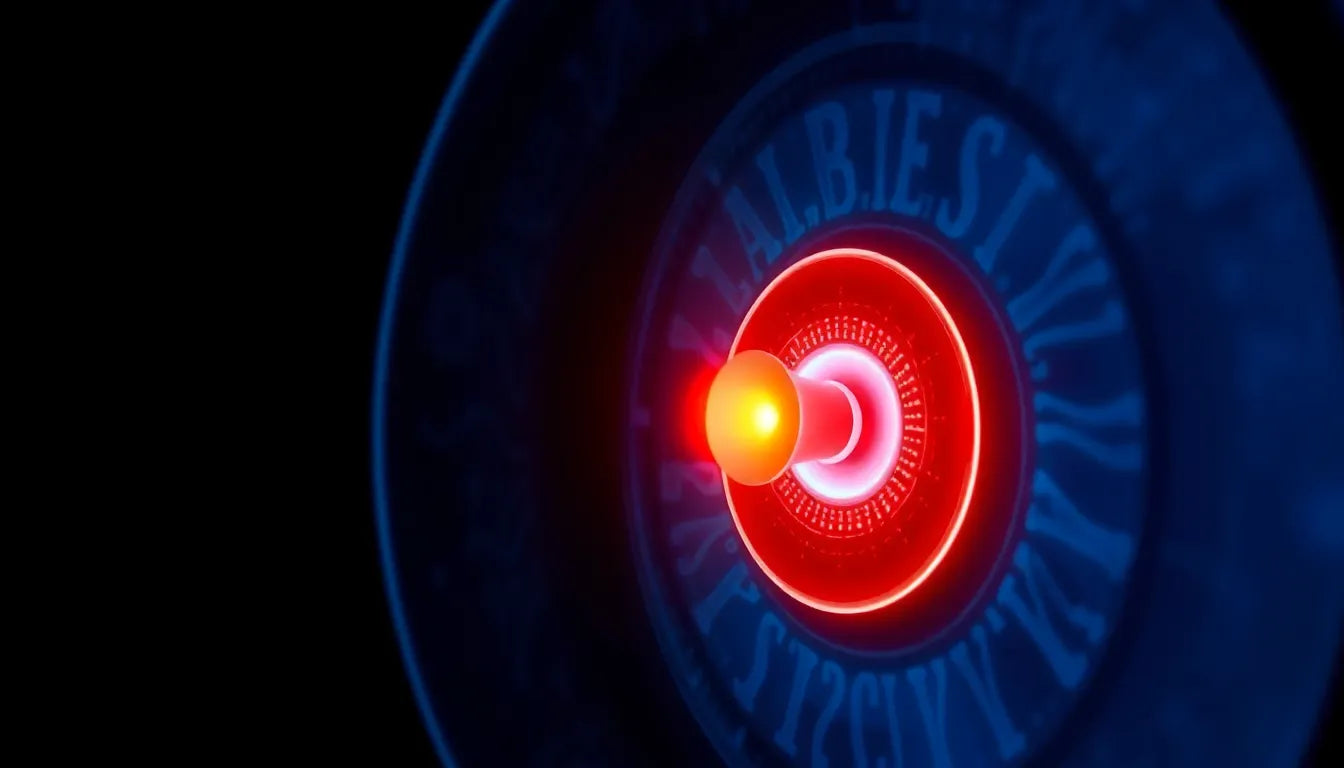When you think of dizziness, a herniated disc in the neck might not be the first cause that comes to mind. Yet, this seemingly unrelated connection can be the root of perplexing symptoms for many individuals. The cervical region of the spine, which comprises the neck, plays a crucial role in maintaining balance and spatial orientation. When a disc in this area herniates, it can lead to a condition known as cervicogenic dizziness, or cervical vertigo, which manifests as dizziness and disorientation.
Understanding the connection between neck issues and dizziness
A herniated disc in the neck occurs when the soft inner gel of a cervical disc protrudes through its tougher outer layer. This can put pressure on nearby nerves and cause a range of symptoms, including neck pain, stiffness, and tingling in the arms. However, the implications can extend beyond these localized symptoms. The cervical spine is intricately linked to the body's balance systems, and disturbances here can lead to dizziness. This happens because the nerves and structures in the neck provide essential feedback to the brain about head position and movement, which are critical for maintaining equilibrium.
Cervicogenic dizziness is a term used to describe dizziness that originates from neck problems. It is often accompanied by other symptoms such as headaches, nausea, and a sensation of spinning or imbalance. These symptoms can be confusing and distressing, particularly because they are not always immediately associated with neck issues. This condition is frequently misunderstood, leading to misdiagnosis and inappropriate treatment. Understanding the underlying causes and mechanisms is essential for effective management and relief.
The goal of exploring herniated disc-related dizziness
This blog post aims to demystify the connection between a herniated disc in the neck and dizziness. By delving into the causes, symptoms, and treatment options, we hope to provide clarity on this complex condition. Whether you are experiencing these symptoms yourself or know someone who is, gaining an understanding of how a herniated disc can lead to dizziness is the first step towards finding relief. The following sections will explore the medical mechanisms behind this condition, discuss how it is diagnosed, and outline potential treatment paths to help alleviate symptoms and improve quality of life.
medical causes and mechanisms of dizziness from a herniated disc
The cervical spine's role in maintaining balance and spatial orientation is profound, and disruptions here can have far-reaching effects. One significant factor is cervical disc degeneration, which can lead to dizziness through the release of inflammatory cytokines. These chemicals can disrupt proprioceptive signals—those that help the brain understand the body's position in space. When these signals are impaired, the integration of vestibular (balance) and visual sensory information becomes compromised, resulting in dizziness.
Another critical aspect involves nerve compression. A herniated disc in the neck can press against nerves, leading to symptoms that extend beyond pain and tingling. This compression can irritate nerves or even affect the spinal cord, impacting balance and spatial awareness. Such nerve irritation often exacerbates dizziness, especially during certain neck movements or postures. These movements can trigger a spinning sensation, a hallmark of cervical vertigo, and make everyday activities challenging.
symptoms, diagnosis, and related conditions
Symptoms of a cervical herniated disc are varied and can include neck pain, stiffness, numbness, and tingling sensations. However, when dizziness or vertigo-like sensations are present, it indicates a deeper involvement of the cervical spine's interaction with the body's balance systems. These symptoms can be accompanied by nausea, vomiting, and headaches, which complicate the diagnostic process.
Diagnosing dizziness resulting from a herniated disc involves a thorough examination to rule out other potential causes. This often includes imaging tests, such as MRI scans, to visualize the extent of disc herniation and its impact on surrounding structures. Given the complexity of symptoms and their overlap with other conditions, accurate diagnosis is crucial. Misdiagnosis can lead to ineffective treatment and prolonged distress for the patient.
Understanding these medical causes and mechanisms is essential for anyone experiencing these symptoms. It highlights the importance of a comprehensive approach to diagnosis and treatment, ensuring that the root cause of dizziness is addressed, not just the symptoms. In the next section, we will explore the various treatment options available, both conservative and surgical, to provide relief and improve quality of life for those affected by this condition.
Treatment options for dizziness from a herniated disc in the neck
When managing dizziness caused by a herniated disc in the neck, a range of treatment options are available to alleviate symptoms and improve quality of life. The choice between conservative and surgical interventions depends on the severity of symptoms and the extent of nerve compression.
Conservative treatments
Conservative treatment approaches are often the first line of action. Physical therapy plays a crucial role in these non-surgical methods, focusing on exercises that strengthen neck muscles, improve posture, and enhance proprioception. These exercises aim to reduce nerve irritation and inflammation, thereby alleviating dizziness.
Pain management is another vital aspect of conservative treatment. This may involve the use of medications such as non-steroidal anti-inflammatory drugs (NSAIDs) or muscle relaxants to manage discomfort and reduce inflammation. Additionally, lifestyle modifications, including ergonomic adjustments at work and home, can significantly impact symptom reduction. This includes ensuring proper neck alignment during activities and using supportive pillows during sleep.
Surgical interventions
In cases where conservative treatments do not provide sufficient relief, or when there is significant nerve compression leading to functional impairment, surgical options may be considered. A common surgical procedure for a herniated disc in the neck is a discectomy, where the herniated portion of the disc is removed to relieve pressure on the affected nerves.
Other surgical options include cervical fusion, where two or more vertebrae are fused to stabilize the spine, or artificial disc replacement, which aims to maintain more natural neck movement post-surgery. These procedures are typically recommended when there is a risk of permanent nerve damage or when symptoms severely impact daily activities.
It is crucial for individuals experiencing dizziness due to a herniated disc in the neck to consult with a healthcare professional to determine the most appropriate treatment plan based on their specific condition and overall health.
Frequently Asked Questions
What is cervicogenic dizziness?
Cervicogenic dizziness refers to dizziness that originates from neck problems. It is often due to nerve irritation or blood flow issues in the cervical spine, leading to symptoms such as dizziness, imbalance, and sometimes headaches.
How is dizziness from a herniated disc diagnosed?
The diagnosis of dizziness caused by a herniated disc involves a comprehensive evaluation, including a physical examination and imaging tests like MRI. It is essential to rule out other potential causes of dizziness to ensure an accurate diagnosis.
What are the best treatment options for dizziness caused by a herniated disc?
Treatment options vary depending on the severity of the condition. Conservative treatments include physical therapy, pain management, and lifestyle changes. In more severe cases, surgical interventions such as discectomy may be necessary. Personalized medical advice is crucial for determining the best treatment pathway.
Can lifestyle changes help with symptoms?
Yes, lifestyle changes can significantly help alleviate symptoms. Correcting posture, making ergonomic adjustments, and performing specific neck exercises can reduce dizziness and improve overall neck function.
When should one seek medical intervention?
Medical intervention should be sought if dizziness is accompanied by severe neck pain, numbness, or any signs of functional impairment. Early consultation with a healthcare professional can prevent further complications and aid in effective management of the condition.
Sources
- National Library of Medicine. "Cervical Discogenic Dizziness: Pathophysiology and Diagnosis."
- WebMD. "Herniated Disc: Symptoms and Treatment."
- ProCare Med Center. "Understanding Cervicogenic Dizziness."
- Physiotattva. "Cervical Vertigo: Symptoms and Treatment Options."
- Advanced Spine Center. "Herniated Disc Symptoms and Treatment by Level."


















